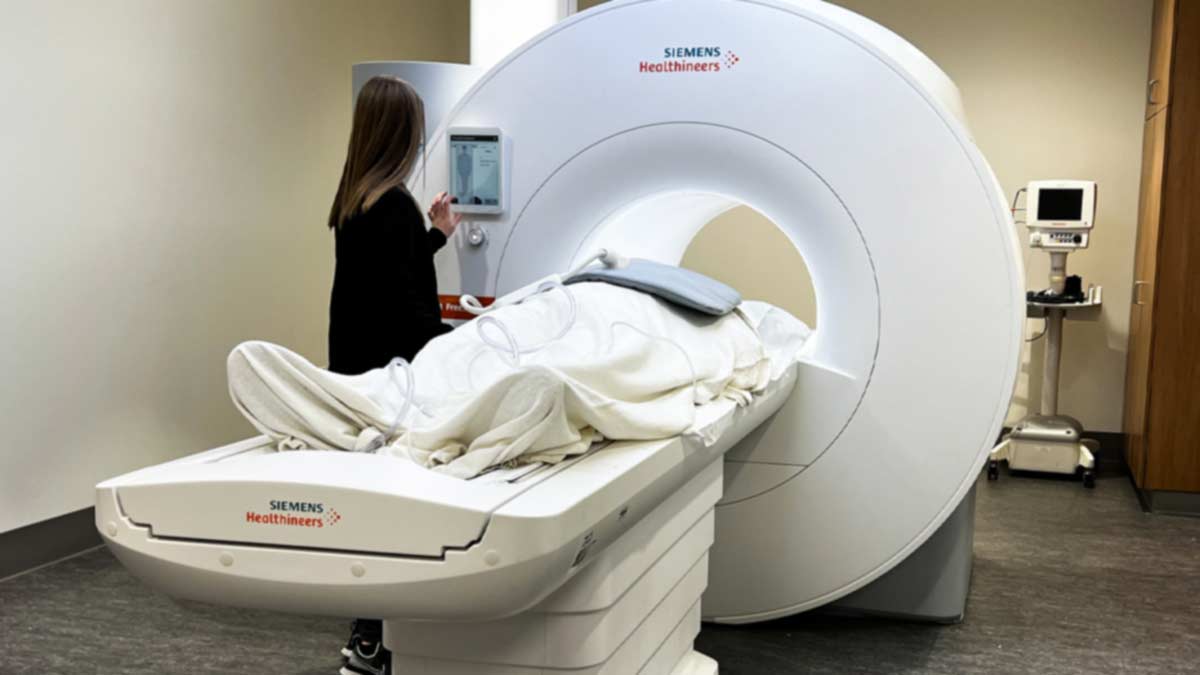Megan Ballinger's favorite cells: macrophages
 What causes idiopathic pulmonary fibrosis (IPF)? A new $2.5 million R01 grant from the National Institutes of Health will help immunologist Megan Ballinger, PhD, assistant professor at The Ohio State University College of Medicine, pursue an answer. Her research investigates the role of macrophages, cells of the immune system. Dr. Ballinger calls them her “favorite cells.”
What causes idiopathic pulmonary fibrosis (IPF)? A new $2.5 million R01 grant from the National Institutes of Health will help immunologist Megan Ballinger, PhD, assistant professor at The Ohio State University College of Medicine, pursue an answer. Her research investigates the role of macrophages, cells of the immune system. Dr. Ballinger calls them her “favorite cells.”
“Macrophages were historically thought of as ‘big eaters,’ but now we know they do so much more,” Ballinger says. In addition to protecting the lungs against bacteria and viruses, they also interact with structural cells in the lungs and can regulate production of collagen from fibroblasts. To fully understand the role of macrophages in the setting of IPF, scientists need to know where these cells come from, what activates them and what their function is during pulmonary fibrosis. Although her work focuses on the lungs, pathways and mechanisms uncovered in her lab may also have broader implications for preventing, treating or reversing fibrosis in other organs, such as the liver, kidneys, skeletal muscles and the heart.
Extra collagen in our skin is good because it smooths out wrinkles. Collagen is an abundant protein in the body that’s important for providing structure. But too much collagen in our lungs makes them rigid, interfering with their basic job of exchanging carbon dioxide for oxygen. The stiff lungs can’t expand and contract, so the exchange of gases is reduced, resulting in patients becoming progressively more short of breath, which is what occurs in IPF. This devastating disease results in a survival prognosis of only two to five years. There are currently about 50,000 new diagnoses annually in the United States.
A native of Tallmadge, Ohio, Dr. Ballinger’s interest in pulmonary fibrosis was sparked while earning a PhD in immunology and doing postdoctoral work at the University of Michigan. “I knew I wanted to be an immunologist because I was really interested in understanding how our bodies fight off diseases,” she says. “I think the lung is a really cool organ by which to study the immune system. It’s the largest internal organ with exposure to the outside world. One job of the immune system within the lung is to distinguish between something pathogenic that can hurt the body and something that is inert and just needs to be disposed of, such as a dead cell. My work focuses on understanding the delicate balancing act that macrophages play in providing protection against pathogens and keeping the lungs healthy.”
Returning to Ohio in 2014, she found the Ohio State University College of Medicine’s internal medicine department and the lung transplant program to be the ideal environments for PhD scientists. “Daily interactions with clinicians and physician-scientists who take care of IPF patients have helped me learn more about the disease itself, as well as the challenges of diagnosis and treatment,” she says. “Through these collaborations I have been able to obtain clinical samples, which have provided validation for investigating specific pathways. OSU has provided a great environment for me to be able to grow into a successful, independent scientist and to obtain R01 funding to further my research.”
Dr. Ballinger’s work has garnered a number of awards, most recently, the American Thoracic Society’s Jo Rae Wright award for Outstanding Science. She says that receiving R01 funding from the National Institutes of Health is a game changer. “It’s a ticket to establishing myself as an independent researcher in the field of pulmonary fibrosis. The funds provided by the R01 are essential in allowing me time to focus on research and giving me the ability to hire people and train students and postdoctoral research fellows to help make advances in the diagnosis and treatment of this devastating disease.”
When she’s not at work, Dr. Ballinger enjoys spending time with friends and her husband, their twin boys and daughter. “I really enjoy traveling with them and getting to experience things through their eyes,” she says. The Ballingers have planned a trip out west this summer. “My goal is to get the kids to all 50 states before they graduate high school.” Their mom is a foodie who enjoys trying out new restaurants with her husband and spending time in the kitchen cooking new recipes. An avid reader, she is also an active member of two book clubs.



